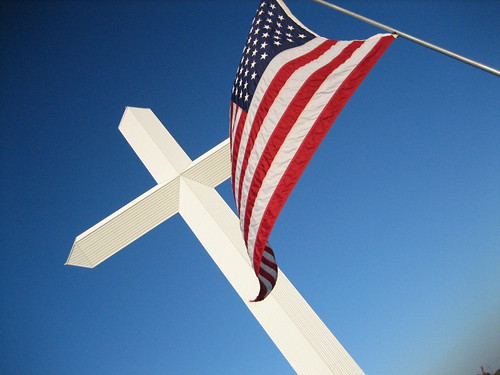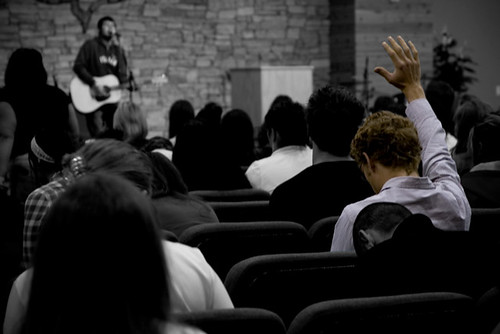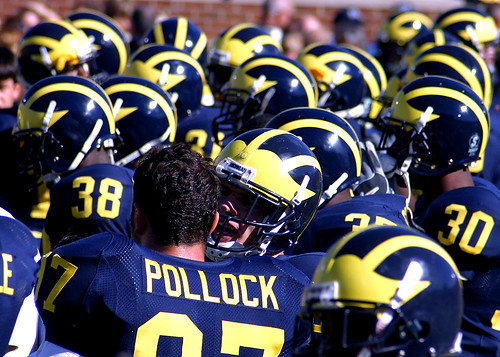 |
| Me with my soldier, iPhone, Buzz Lightyear and football player |
 |
| Carved by Lori: Princess Tiana & Curious George |
 |
| Carved by me: Michigan's winged helmet & Stormtrooper |
Thoughts on the intersection of race, religion, politics, ministry, sports and culture.
 |
| Me with my soldier, iPhone, Buzz Lightyear and football player |
 |
| Carved by Lori: Princess Tiana & Curious George |
 |
| Carved by me: Michigan's winged helmet & Stormtrooper |
 |
| Photo Credit: emrank |
"Two problems with whining. The first is that it doesn't work. You can whine about the government or your friends or your job or your family, but nothing will happen except that you'll waste time.
Worse... far worse... is that whining is a reverse placebo. When you get good at whining, you start noticing evidence that makes your whining more true. So you amplify that and immerse yourself in it, thus creating more evidence, more stuff worth complaining about.
If you spent the same time prattling on about how optimistic you are, you'd have to work hard to make that true..."
 |
| Photo Credit: Whiskeygonebad |
"African-Americans go to religious services and pray daily more often than the general American population, studies show. And while those rates seem to be holding steady, the places of worship and the size of the groups are changing, says one expert.To read the rest of the article click here.
Many people continue to attend mega churches, but the small communal gathering is rebounding in popularity, Teresa L. Fry Brown said.
“There is an increase now in house churches,” said Fry Brown, the director of black church studies at Emory University in Atlanta, Georgia. “They kind of faded for about 20 years. But now more people are having small gatherings. And they may not even call it church - like Bible studies in homes.”
There are a couple of reasons for the change, she said. Some churchgoers find the bigger houses of worship too restrictive or simply don’t trust the leadership of the church.
She said people are meeting more often in club houses, homes and restaurants. And the gatherings aren’t always sponsored through a church.
In 2009, the Pew Research Center reported that 53 percent of African-Americans attended church regularly, compared with 39 percent of all Americans."
 |
| Photo Credit: thomaswanhoff |
"Seventeen days into the mine accident, Campus Crusade for Christ International (CCCI) country director for Chile, Christian Maureira, started contacting public officials to see if they could send the miners a copy of the film. Fiess said Maureira was able to reach a daughter and a brother of miner Jose Henriquez.The goal of the Jesus Film Project is to give every person in the world an opportunity to say "yes" to Jesus. It is nice to see that not only were these miners physical lives saved but they also got the opportunity to receive the gift of eternal life.
Through that family contact, the group was able to send an MP3 audio version of the Jesus film and an MP3 audio version of the New Testament in Spanish to Henriquez down in the mine.
The Jesus film explains that the New Testament tells how Jesus is laid in a tomb-like cave after his crucifixion. Three days later, Jesus is said to have risen from the dead. In the Jesus film, women come to the tomb and find the stone that blocked the entrance has been rolled away, the cave empty.
It is unclear if the miners saw the resurrection story as a parallel for their hoped-for rescue, but Jose Henriquez passed along a letter to CCCI's Maureira from inside the mine. Fiess shared the English translation with CNN:
Thank you for this tremendous blessing for me and my coworkers. It will be good for our spiritual edification. I am fine because Christ lives in me.We have prayer services at 12 noon and 6 pm."At the end of the letter," Fiess said, "(Henriquez) said goodbye with Psalm 95:4, which says, 'In His hand are the depths of the earth, and the mountain peaks belong to Him.'"
A few days later, Henriquez asked Maureira to get them special T-shirts.
"The T-shirts were a gift from Campus Crusade for Christ Chile," Fiess said. "In the front you can read, 'Gracias Senor' – 'Thank you Lord.'"
And on the back, Psalm 95:4.
"Apparently, all the miners liked them," Fiess said. "It kind of solidified them."
 |
| Photo Credit: euripedies |
"Idolatry is often subtle. I’ve never walked into a Church to see the cross replaced with a golden calf. It’s not that blatant. Idolatry replaces God with anything that is less than God, even if that thing is pretty good.
I would define patriotism as the love of country and to desire and work for its good. It is a good thing. Patriotism passes into idolatry if Christianity is reduced to a means of achieving the good of country, or love of country comes to mean the same thing as love of God and neighbor.
There are two primary ways we can slip into idolatry: through theology or fervor. Our theology, for starters, needs to distinguish between what it means to be an American citizen and a Christian; between the hope of Christ and the will of God for America. It needs to say how we love God and neighbor first and still love country.
When it comes to fervor, we can’t allow our political passions to cloud Christian discernment. For example, Christians should be concerned about our national security. But, that does not mean anything our country does in the name of national security is Christian or moral. Christians should be concerned about the poor. But, that does not mean anything our country does in the name of helping the poor is right. God desires America to be secure and just (as God does of the whole world), but Christianity is not to be reduced to something useful merely to these ends.
Idolatry can creep up on you. For personal accountability, I try to be in regular contact and relationship with Christians who share different political opinions, especially Christians living in different countries. Having close friends and family who passionately disagree with my politics has helped me discern between my political fervor and Christian conviction. Having friends whose patriotism is directed at a different nation-state, but who still share my faith, has helped me distinguish between my love of God and my love of country."
 |
| Photo Credit: shutterchik |
"God in America examines the potent and complex interaction between religion and democracy, the origins of the American concept of religious liberty, and the controversial evolution of that ideal in the nation's courts and political arena. The series considers the role religious ideas and institutions have played in social reform movements from abolition to civil rights, examining the impact of religious faith on conflicts from the American Revolution to the Cold War, and how guarantees of religious freedom created a competitive American religious marketplace.
It also explores the intersection of political struggle and spiritual experience in the lives of key American historical figures including Franciscan Friars and the Pueblo leader Po'pay, Puritan leader John Winthrop and dissident Anne Hutchinson, Catholic Bishop John Hughes, abolitionist Frederick Douglass, Presidents Thomas Jefferson and Abraham Lincoln, reform Rabbi Isaac Meyer Wise, Scopes trial combatants William Jennings Bryan and Clarence Darrow, evangelist Billy Graham, civil rights leader Martin Luther King, Jr., and the Moral Majority's Jerry Falwell.Check your local television listings for times and station.
"The American story cannot be fully understood without understanding the country's religious history," says series executive producer Michael Sullivan. "By examining that history, God in America will offer viewers a fresh, revealing and challenging portrait of the country."
"Americans are awash in a sea of faith, but their knowledge about religious faiths and religious history often runs as shallow as their commitment to religion runs deep," notes Stephen Prothero, chief editorial consultant for God in America, professor of religion at Boston University, and author of Religious Literacy: What Every American Needs to Know -- And Doesn't. "A series like God in America can help correct that imbalance and provide the basis for a common understanding of the role religion has played in American public life."
 | |
| Photo Credit: Andrew Morrell Photography |
 |
| Photo Credit: National Archives |
"Numerous studies have shown that African Americans remain much less likely to get immunizations of any kind. For older African Americans, who more often than their peers of other races have heart disease, diabetes and other serious illnesses, a flu shot can mean the difference between life and death. African Americans of all ages avoid shots -- and the health care system in general -- out of mistrust. Last year, during the height of the H1N1 hysteria, a widely circulated Twitter message warned, "Don't take the swine flu vaccine. Remember the Tuskegee Experiment."To read more on the Tuskegee Study, click here and to read Professor Susan Reverby's article on Guatemala click here.
By and large, though, it's not a hazy memory of the Tuskegee episode that's fueling suspicion and distrust of the system. Most of us are too young to remember it; even Dr. Cutler is long gone. Rather, our broken and battered current health care system is what is driving African Americans away from treatment and care. It's been a decade since Congress first admitted officially what 37 million black people already know: that the U.S. medical care system doesn't treat us well. A damning 2002 report by the well-respected Institute of Medicine called "Unequal Treatment: Confronting Racial and Ethnic Disparities in Health Care" laid it out point by ugly point for Congress and everyone else. And according to numerous studies, little has changed."
| HowManyOfMe.com | ||
|
"The latest statistics paint a sad picture of the current involvement of African Americans in missions. Jim Sutherland counted 242 total African-American missionaries serving cross-culturally in 1998. In 1973, Robert Gordon reported under 300. These numbers compare to 33,000 missionaries from the U.S. in 1973 and about 45,000 U.S. missionaries today. African Americans make up about 12 percent of the U.S. population but less than 1 percent of the U.S. mission force to the world. If it was proportionately represented in the mission force today, the African-American community would have some 5,400 cross-cultural missionaries.Vaughn also offers several suggestions on how black Americans can be more effectively mobilized for world missions. You can read Vaughn's complete article here.
We know that history has played a part in bringing about this shortfall. Several generations were simply cut off from direct involvement and promotion of missions. Because of this, subsequent generations just did not have missions on their agenda at all. But what other factors have come into play in today's church situation?"
"Most African-American pastors are unfamiliar with what is going on in the world today regarding missions. They were not taught about missions. They do not know general missions history. They are unaware of the heritage of African Americans in missions. Thus they cannot teach their congregations about missions."
"African-American pastors desire financial stability. They want to bring the money into the church - not send it out. Since the African-American community has historically been oppressed and deprived of opportunity for financial gain, now that many opportunities exist, the desire is to bring it in and keep it in the community. Many African-American churches still struggle financially for their own survival. Yet the statistics indicate that a high percentage of African-American churches are doing very well financially."
"Historically, the American dream has eluded the African-American community. For many, attaining it has become a Christian value. Thus, moving from oppression and want to materialism and comfort is a subtle but natural distraction. American prosperity is finally within the reach of the African-American community, and missions runs counter to that plan.
Many African Americans fear rejection and a lack of emotional support from white mission agencies. In the past, African Americans were accepted to serve with white mission societies, but on the field they were given menial tasks. Blacks were accepted to work, but not to lead. With a lack of mission education and a priority on home, it is no wonder that the African-American church represents only a small percentage of the mission force in the world."